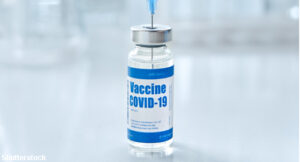 Rheumatologists use rituximab to treat patients with inflammatory rheumatic diseases. The monoclonal antibody targets CD20, eradicates peripheral B cells and suppresses B cell function, including immunoglobulin production. Thus, rituximab can inhibit the ability of novel antigens to induce an antibody response, which has raised concerns among healthcare providers and patients that its use may make patients more vulnerable to COVID-19.
Rheumatologists use rituximab to treat patients with inflammatory rheumatic diseases. The monoclonal antibody targets CD20, eradicates peripheral B cells and suppresses B cell function, including immunoglobulin production. Thus, rituximab can inhibit the ability of novel antigens to induce an antibody response, which has raised concerns among healthcare providers and patients that its use may make patients more vulnerable to COVID-19.
This fear was reinforced by a case series that reported two patients with lymphoma who were treated with rituximab and subsequently developed COVID-19 pneumonia with persistent viremia. The authors of the case report note the patients seemed unable to clear the viral infection, and they hypothesized viremia itself—as well as the duration of the viremic period—contributed to death.1
Does Vaccination Protect this Vulnerable Group?
The arrival of COVID-19 vaccines in late 2020 and early 2021 has led rheumatologists to question whether the vaccines will protect or even benefit patients treated with rituximab given their suppressed B cell function. (For more on this concern, read “COVID-19 Vaccine Efficacy & Safety Discussed at Town Hall.”)
A recent study indicates B cell depleting therapy with rituximab does, as anticipated, affect the humoral immune response to COVID-19 vaccination. However, the investigators found all B cell-depleted patients were able to mount a T cell-mediated immune response. Michael Bonelli, MD, a clinical rheumatologist at the Medical University of Vienna, Austria, and colleagues published the findings as a letter in May in the Annals of the Rheumatic Diseases and as a full article in July.2,3
The investigators selected five patients under regular and recent rituximab treatment and vaccinated them with the BNT162b2 (Pfizer/BioNTech) COVID-19 vaccine. As controls, researchers selected four sex-matched, healthy individuals who received two vaccinations with BNT162b2 and four unvaccinated healthy controls. In addition to measuring antibody response to the SARS-CoV-2 nucleocapsid and the receptor-binding domain of the spike protein, the researchers measured SARS-CoV-2 specific T cell reactivity via interferon-ɣ response to SARS-CoV-2 peptides.
Vaccine Response
“It’s a very specific question that we raised,” says Daniel Aletaha, MD, MS, MBA, head of division of rheumatology at the Medical University of Vienna, Austria.
His team attempted to quantify how many patients developed antibodies after vaccination (two out of five) and also had a cellular response (all five patients). Dr. Aletaha concludes from this finding that rheumatologists should be comforted that, although perhaps less than half of patients develop antibodies after COVID-19 vaccination, many will have cellular immunity.



